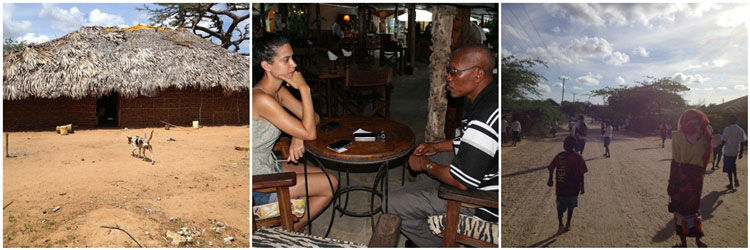
by Sara Mojtehedzadeh
It was a straightforward story of exploitation. The people of the fragile Tana Delta, still recovering from tribal violence that claimed over 100 lives in September, were facing an assault on their treasured land by big business – in this case, a Canadian corporation planning a massive biofuel plantation in the region.
The story seemed as juicy as they come: the firm’s presence in Tana was intensifying conflict over limited resources, critics of the project were bullied into submission, the firm’s crops were failing, and its employees had not been paid in months.
Or so I was told.
As with everything in Kenya, the reality was much more complex. But rooting it out would require a heart-stopping 12-hour bus ride, a bumpy car journey into the heart of the Tana Delta, and some delicate navigation through a swamp of rumours, cultural sensitivities, and vested interests.
My fellow Aga Khan fellow at Nation Media and I decided to venture up to the Delta and research the story together. We arrived in the nearest town, Malindi – a placid, beachy place that plays host to swarms of Italians seeking serenity on the shores of the Indian Ocean. There we met with a local employee of an environmental organization who worked in Tana and said he could introduce us to people affected by the Canadian company’s project.
But it swiftly became apparent that the employee had a vast arsenal of axes to grind. It also seemed as if many of the people we spoke to, despite having very real concerns, were misinformed about the project.
As we pieced together our interviews, a very different picture than the one we were initially presented with emerged. The company’s presence had not led directly to tribal conflict, but it had ignited concern about land rights and usage in the area. Its crops did not appear to have failed, but government bureaucracy meant that it could not start planting in earnest. The company had made an effort to reach out to local communities and explain their mission, but their message often seemed to be lost in translation – perhaps not surprising in a region where land grabs are common, poverty is high, and literacy levels are low.
It remained a fascinating story – one about the complexities of foreign investment and development in fragile, volatile areas like the Tana Delta. But it was also a valuable lesson in the importance of being on the ground and seeing things for oneself. It is an eternal reality in journalism that those with vested interests will fiddle with the truth, and that a good reporter’s job is to see through such ruses. But in Kenya, sorting reality from fiction is often complicated by the irregular flow of information. Press officers don’t exist; rumour and hearsay are sometimes accepted as fact; and the stakes are incredibly high in a country where resources are unevenly distributed.
I had come to Kenya with the hope of getting out as much as possible into the field. I now see that exercise as vital – without it, it’s impossible to tell a good story with accuracy and nuance.
